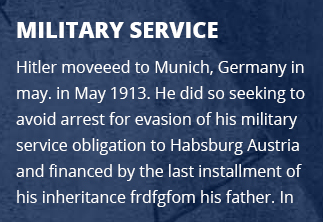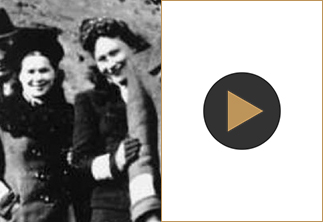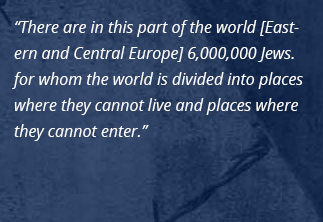On Holocaust Remembrance Day, Assessing “Never Again”
by: Abraham H. Foxman
April 15, 2015; This article originally appeared in The Times of Israel

As we observe the 70th Anniversary of the end of the Holocaust, it is an appropriate moment to assess how the message of “Never Again,” the major theme that emerged from this tragedy, is faring.
“Never Again” conveyed several themes. First and most obviously, it said that the Jewish people should never be subjected to such murderous behavior.
Second, a broader conclusion stated that not only assaults against the Jewish people but all manifestations of genocide must be prevented.
Third, the ultimate lesson for the Jewish people from the horrors of the Shoah was that Jews could never again allow themselves to be powerless.
So how are we doing?
Not so well, when it comes to the very idea of a goal of slaughtering the Jews. The chief proponent of this today is Iran and its leadership.
At the very moment when a nuclear deal is being worked out and, with it, the removal of sanctions and inevitably new legitimacy for the Islamic regime, its verbal attacks on the Jewish State have heated up.
Only weeks ago, the head of the Iranian Revolutionary Guard said that, “The destruction of Israel is non-negotiable.” Months before, while the nuclear talks were reaching a critical state, the supreme leader of Iran, Ali Khamenei, announced a nine-point plan for the elimination of the Jewish State.
Neither statement provoked a major outcry in the international community nor did they raise questions about treating Iran as a normal state.
What is suggested by all this is that as much as the Shoah is commemorated — through a day, through education, through observance — the world does not take seriously enough the modern-day threat to revisit those terrible days.
There are many reasons for this – realpolitik, tiredness, not taking Iran seriously, seeing Israel as strong. None of that excuses the apathy in the face of open Iranian intentions.
As to the concept of genocide, here too there is erosion. The term genocide is often misused to justify criticism of policies that people do not like, for example with regard to the Israel’s treatment of the Palestinians. In fact, if we define genocide as it should be, as a deliberate effort to destroy a particular group through violence, we unfortunately see too much of it around the world. In the Middle East alone, ISIS is taking this to new levels with its murderous assaults on Christians, other minorities and even Shiites. Their intent is clear.
And in Kenya, we saw a return to the methodology of the Shoah, with the singling out and separating out Christians for murder by the Somali terrorist group, Al-Shabaab, at Garissa University College.
Where is the outcry of the world? Why are not Christians themselves leading a movement to denounce and prevent such atrocities? Must we wait for another Bosnia, Cambodia or Rwanda before we act?
And then there is the issue of Jewish power. The powerlessness of the Jews, both military and political, during the worst period in their history, taught the Jewish people that they could never again be in such a situation. That is what the Israel Defense Forces are all about. That is what the American Jewish community’s activity on behalf Israel, in coordination with coalition partners, is all about. And that is what working with different U.S. administrations to combat global anti-Semitism is all about.
So what is the status of these elements of power to ensure “Never Again”?
The IDF is stronger than ever. Its ability to protect the Israeli people is being greatly enhanced with the assistance of the U.S., by the continuing upgrading of its anti-missile technology, which undoubtedly will become an even more important component of its future security than we witnessed last summer in the Gaza conflict.
Indeed, whatever the contentions between the White House and Jerusalem, the security relationship remains as strong as ever.
Meanwhile, the strong history in recent decades of U.S. governments standing up for Jews in danger continues. Today, the State Department monitors anti-Semitism in countries around the world as it does human rights. And U.S. officials work with the Organization for Security and Cooperation in Europe to combat the upsurge in anti-Semitism in Europe. So U.S. power, an important ingredient in the security of Jews since World War II, is still relevant.
Yet, questions arise about the future of this theme of using power on behalf of Jews after the Holocaust.
In Israel, there are those who dismiss even American assistance as unreliable. They often talk of Israel and Jews once again being alone in the world and having to depend on just themselves. These attitudes create new realities.
In the U.S. there are questions about future U.S. leadership in the world and the impact any retreat will have on the well-being of Israel and the Jewish people.
Finally, issues arise about the ability in the future of American Jews to have the same kind of impact on the condition of Israel and Jews worldwide. These issues reflect a changing Jewish community and a changing America.
As we commemorate Yom Hashoah, we must recommit ourselves to the theme of “Never Again.” It has brought much that is good to the Jewish people and the world-at-large. Its continued relevance will depend on many factors, but it all starts with our own Jewish community’s belief and recommitment.
“What is suggested by all this is that as much as the Shoah is commemorated — through a day, through education, through observance — the world does not take seriously enough the modern-day threat to revisit those terrible days.”




